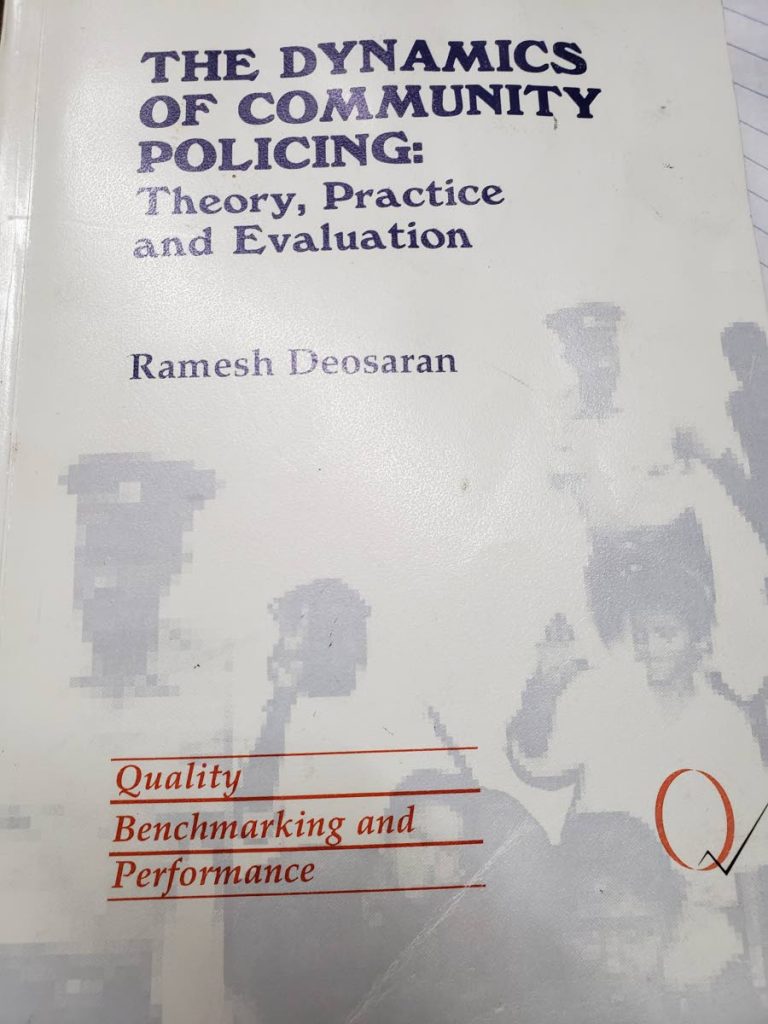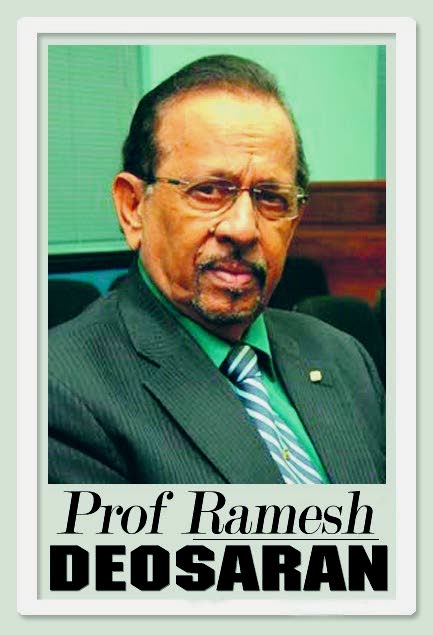Community policing again

After hearing loud cries from the public and from UNC leader Ms Kamla Persad-Bissessar, SC, pledging to make community policing an important part of her anti-crime plans, I went to my home library. I found a local book on community policing with an interesting story about the politics of crime.
In 2000, with late Brig Gen Joseph Theodore as minister of national security and Basdeo Panday as prime minister, cabinet established a 15-member multi-sectoral commission comprising several prominent representatives from business, civil society, politics and the professions.
It was more precisely called the National Quality Council (NQC), efficiently chaired by Liaquat Ali Shah and often visited by PM Panday.
As a member, I also recall sitting between the late Archbishop Anthony Pantin and Frank Mouttet, then chairman of the TT Chamber of Industry and Commerce.
Ramesh Maharaj, SC was Attorney General and Ms Persad-Bissessar a forward-looking Minister of Education.
From the many meetings of the NQC, short and long-term plans were generated for national development especially aimed at improving the overall quality of citizens’ lives.
Businessman Robert Amar presented some “low fruit-picking proposals.” Escalating crime and protests became serious concerns to both citizens and government. PM Panday advised protesters to read a book instead.
I was given the “urgent task” of preparing a book on community policing with special emphasis on training, practice and evaluation. Ok so far.
With the active support of Mr Ali Shah (resources) and Mr Theodore (access to data, etc), the book, The Dynamics of Community Policing: Theory, Practice and Evaluation, was completed and printed within three months. With 217 pages, graphs and 42 recommendations, I used the book as part of the tools to train hundreds of officers at three levels – constables, corporals and sergeants, inspectors.
At the training centres in San Fernando, Debe, Arima and Port of Spain, the enthusiasm among both trainees and supervisors was impressive. They were willing to learn the fine art and situational challenges of community policing in measurable ways. Chapter 12, for example, provided 15 specific ways in which the police can engage the productive support of citizens. OK so far.
As an ongoing part of the community policing training and evaluation programme, Commissioner Guy provided funds for an essay competition among the trainees with cash prizes. The essays, judged by three independent professionals, were extremely impressive and aptly rewarded. This exercise showed how talented our officers can be when given proper opportunity. One constable, drawing from extensive relevant research, explained how narrowly-executed law enforcement provides temporary relief while a well-rounded community policing programme deals with both the immediate crime as well as sustainable crime-prevention in the community.
Community policing with Mr Theodore and Commissioner Guy was on the upward move, building team spirit, leadership styles, attracting widespread community support and effectively becoming part of the police culture. It was a ground-up training project. The evidence was there. OK so far.
However, the 2001 general election came, Mr Patrick Manning’s PNM won. The training project was discontinued. The NQC died a political death. Not OK.
I say all this to help illustrate that we can do it if we try. And reinventing the wheel should not be so much an expensive political pastime. It wastes taxpayers’ money and disrupts continuous training.
The combined short and long-term recommendations were designed to:
1 Make community policing part of the police culture.
2 Make community policing a national sustainable affair to improve detection rate, citizens’ information and witness support.
3 Make each police station a well-integrated operational centre. And it was moving well.
Five of the 42 recommendations were:
1 An alternative reporting system should be developed to take into account the peculiarities of community policing. This is to help ensure fairness in performance appraisal. All community interventions and crime prevention activities of community policing officers be fairly recorded.
2 A diploma in community policing and crime prevention.
3 The elected representatives, both at the parliamentary and regional council levels, should become a credible integral part of the community policing programmes.
4 A National Community Policing Week: Deepening the Partnerships.
5 That Channel 4 be used as an educational community policing medium.
That was 20 years ago!
Who cares? Today, there is the report of the Police Manpower Audit.



Comments
"Community policing again"